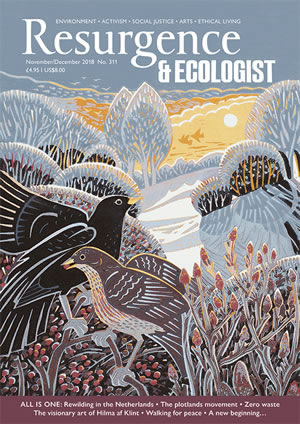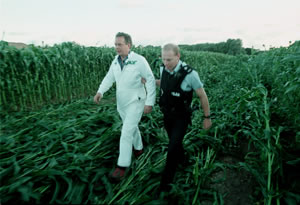Peter Melchett, a passionate defender of the countryside and the integrity of the natural environment, has died at the age of 70. It was my honour and pleasure to know him and to work with him on his contribution to The Countryside We Want, which was published by Green Books.
Peter was inspired by Lady Eve Balfour and her book The Living Soil, and also by Rachel Carson’s book Silent Spring. Both were outstanding voices of the early environmental movement, and were the source of his idealism and vision of humanity living in harmony with the natural world. He translated his idealism into activism and he became director of Greenpeace, one of the foremost environmental organisations in the world.
During his time at Greenpeace, Peter led a remarkable and historic action to oppose GM crops, as one of a group of 28 activists who destroyed a crop of GM maize in 1999. As a result, he was charged with causing criminal damage and appeared at Norwich Crown Court. To everyone’s surprise and delight, Peter and his fellow protesters were acquitted by the jury, who ruled that their cause of protecting the environment was just. This victorious outcome was instrumental in stopping the spread of GM crops, not only in Britain but also in Europe.
Peter was no mere idealist, however. He was a practical man and an organic farmer who looked after the land, cared for the soil, cherished the trees, loved the animals and enjoyed watching birds. He was actively engaged in the work of numerous ecological organisations, including Friends of the Earth, WWF, the Ramblers Association and the RSPB. However, the highlight of his work was promoting organic farming, and he became policy director of the Soil Association. While in that position, he was successful in putting the cause of organic agriculture on both the national and the international agenda.
Peter’s environmentalism was also informed by his experiences as a politician; he was a member of the Labour government under Harold Wilson. That background made it possible to for him to present his ecological values in politically and pragmatically understandable language.
With Peter’s death we have lost a brave, charismatic, consummate and compassionate campaigner for the countryside in particular and the ecological movement in general.








